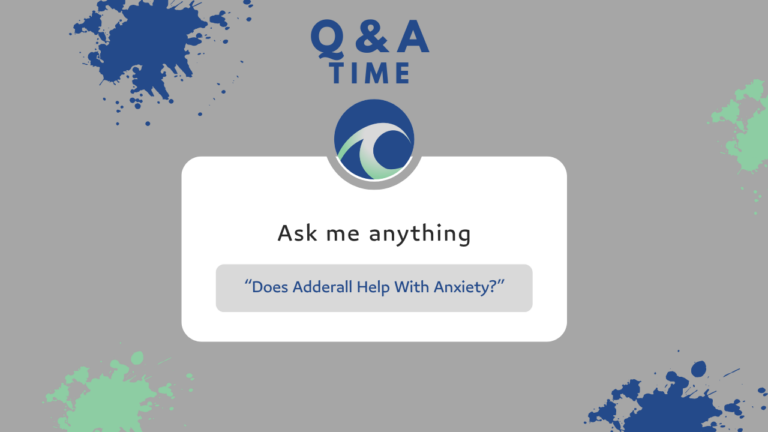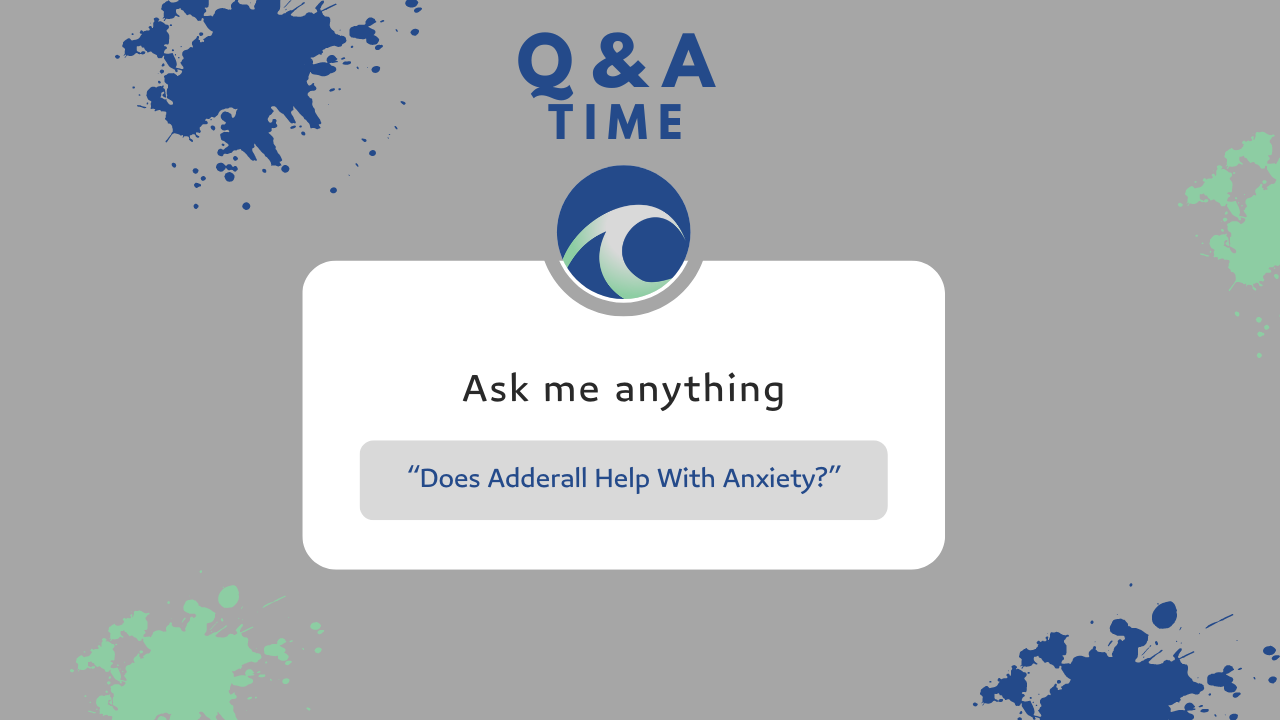
Does Adderall Help with Anxiety? A Comprehensive Analysis
Adderall is a stimulant medication commonly prescribed to treat attention deficit hyperactivity disorder (ADHD). However, some people have reported that the drug also helps alleviate symptoms of anxiety. This has led to the question of whether Adderall is an effective treatment for anxiety disorders.
Anxiety disorders are a group of mental health conditions characterized by excessive worry, fear, and nervousness. These conditions can be debilitating and interfere with daily life. While there are several treatments available for anxiety disorders, some people may turn to Adderall as an alternative option. However, the efficacy of Adderall in treating anxiety is still a topic of debate among experts.
Understanding Adderall
Composition and Function
Adderall is a prescription medication that is composed of two active ingredients: amphetamine and dextroamphetamine. These substances are classified as stimulants, which means they increase the activity of certain chemicals in the brain, such as dopamine and norepinephrine.
Adderall works by stimulating the release of these chemicals, which can improve focus, attention, and alertness. The medication is available in both immediate-release and extended-release formulations, and the effects can last for several hours.
Approved Uses
Adderall is approved by the U.S. Food and Drug Administration (FDA) for the treatment of attention deficit hyperactivity disorder (ADHD) and narcolepsy. It is also sometimes prescribed off-label for other conditions, such as depression and anxiety.
However, it is important to note that Adderall is not approved by the FDA for the treatment of anxiety disorders. While some people may experience a reduction in anxiety symptoms while taking Adderall, this is not its primary intended use.
It is also important to note that Adderall can be habit-forming and has a high potential for abuse. It should only be taken under the guidance of a healthcare professional and as prescribed.
Overall, while Adderall can be an effective medication for certain conditions, it is important to understand its composition, function, and approved uses before considering it as a treatment option.
Adderall and Anxiety
Effects on Anxiety
Adderall is a stimulant medication that is commonly prescribed for the treatment of attention deficit hyperactivity disorder (ADHD). However, some people with anxiety disorders may also be prescribed Adderall to help manage their symptoms.
Adderall can increase the levels of dopamine and norepinephrine in the brain, which can help to improve focus, attention, and alertness. These effects can be beneficial for people with anxiety disorders who struggle with concentration and focus.
In addition, Adderall may help to reduce feelings of fatigue and lethargy, which can be common symptoms of anxiety. By increasing energy levels, Adderall may help people with anxiety disorders to feel more motivated and engaged in their daily activities.
Risks and Considerations
While Adderall may be helpful for some people with anxiety disorders, it is important to note that it can also have potential risks and side effects.
One potential risk is that Adderall can increase heart rate and blood pressure, which can be dangerous for people with pre-existing heart conditions. Additionally, Adderall can be habit-forming and may lead to dependence or addiction if not taken as prescribed.
Other potential side effects of Adderall include insomnia, anxiety, irritability, and agitation. These side effects can be particularly problematic for people with anxiety disorders, as they may exacerbate existing symptoms.
Overall, while Adderall may be a helpful treatment option for some people with anxiety disorders, it is important to carefully weigh the potential benefits and risks before beginning treatment. It is also important to work closely with a healthcare provider to ensure that Adderall is being used safely and effectively.
Alternative Anxiety Treatments
Therapy Options
While Adderall may be effective in treating anxiety for some individuals, others may prefer alternative treatments that do not involve medication. Therapy options such as cognitive-behavioral therapy (CBT), dialectical behavior therapy (DBT), and mindfulness-based stress reduction (MBSR) have been shown to be effective in reducing symptoms of anxiety.
CBT is a form of talk therapy that focuses on identifying and changing negative thought patterns and behaviors that contribute to anxiety. DBT is a type of therapy that combines elements of CBT with mindfulness techniques to help individuals regulate their emotions. MBSR is a program that teaches individuals mindfulness meditation and yoga to reduce stress and anxiety.
Lifestyle Changes and Natural Remedies
In addition to therapy, lifestyle changes and natural remedies can also be effective in reducing symptoms of anxiety. Regular exercise, a healthy diet, and getting enough sleep can all help to reduce stress and anxiety.
Certain supplements such as omega-3 fatty acids, magnesium, and valerian root have also been shown to be effective in reducing anxiety symptoms. However, it is important to speak with a healthcare provider before starting any new supplement regimen.
Other natural remedies such as aromatherapy, acupuncture, and massage therapy may also be helpful in reducing anxiety symptoms. It is important to note that while these remedies may be effective for some individuals, they may not work for everyone and should not be used as a substitute for professional medical advice.
Overall, there are a variety of alternative treatments available for individuals who prefer not to take medication for their anxiety. It is important to work with a healthcare provider to determine the best treatment plan for each individual’s unique needs and circumstances.
Consulting Healthcare Professionals
When considering the use of Adderall for anxiety, it is important to consult with a healthcare professional. A doctor or psychiatrist can evaluate an individual’s symptoms and medical history to determine if Adderall is an appropriate treatment option.
Healthcare professionals can also provide guidance on the safe and effective use of Adderall. They can monitor for potential side effects and adjust the dosage as needed. It is important to follow their instructions closely and not exceed the recommended dosage.
Additionally, healthcare professionals can help address any underlying causes of anxiety. While Adderall may provide temporary relief, it is not a long-term solution for anxiety. Addressing the root cause of anxiety through therapy or other treatments may be necessary for lasting improvement.
Overall, consulting with a healthcare professional is crucial when considering the use of Adderall for anxiety. They can provide personalized recommendations and ensure safe and effective treatment.
At Waterside Recovery Centers we pride ourselves on providing the top addiction treatment in Massachusetts. With a range of evidence-based, client-focused and individualized treatment offerings, we are able to provide the ideal support for those seeking recovery from substance addiction. Please feel free to reach out to our help line at anytime.
(866)671-8620




